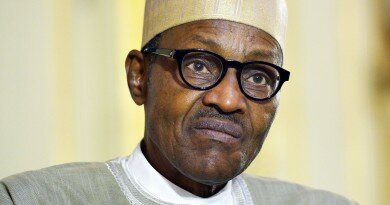EU to issue Brexit negotiation guidelines
By BBC
European Council President Donald Tusk is due to issue draft guidelines on how the EU intends to negotiate the UK’s departure from the bloc.
The proposals will be sent to the governments of 27 EU members.
They will help set the tone for two years of tough negotiations and efforts to finalise a deal.
EU leaders say the UK must first agree its exit terms before talks can move on to future ties. London is calling for simultaneous talks.
British Prime Minister Theresa May formally triggered the Brexit process on Wednesday, by sending the Article 50 notification to Mr Tusk.
Mr Tusk who is currently in Malta at a meeting of EU centre-right leaders – is expected to send the draft guidelines to the 27 EU members on Friday morning.
The European Council had intended to publish the guidelines on its website straight away, but the BBC understands that two EU member states objected.
Analysis: BBC’s Chris Morris in Malta
The draft negotiating guidelines will set the tone for two years of tough talks to come.
My understanding is that Donald Tusk was still working on the final details of the document late into Thursday evening here in Malta – but it is expected to be six or seven pages long and will focus in particular on the sequence of negotiations.
The terms of transition will be difficult to agree because they will involve topics of huge controversy in the UK – including freedom of movement of people and the role of the European Court of Justice.
The guidelines will contain a general statement of principles, and go into some detail about how the EU intends the negotiations to be structured.
That means:
- Initial talks for several months on the divorce – a broad agreement on the terms of separation
- Then several months of negotiation on the shape of a future trade partnership
- Finally – possibly the toughest phase of all – talks about the transition between full membership now and a totally new relationship in the future.
€60bn ‘divorce’ bill
On Thursday, French President Francois Hollande told Mrs May the withdrawal agreement should come first, a common line among European leaders who say they will not allow “cherry-picking”.
Meeting in Malta, members of the centre-right European People’s Party (EPP), the largest group in the European parliament, said they would focus on:
- Ensuring that the rights of EU citizens in the UK continue
- Avoiding a hard border between Northern Ireland and the Republic of Ireland
- Settling the UK financial bills with the bloc, estimated to be as much as €60bn (£51bn; $64bn)
Speaking at the meeting, German Chancellor Angela Merkel did not mention Brexit directly, but said the EU must guarantee the prosperity and security of its citizens or risk them turning away.





